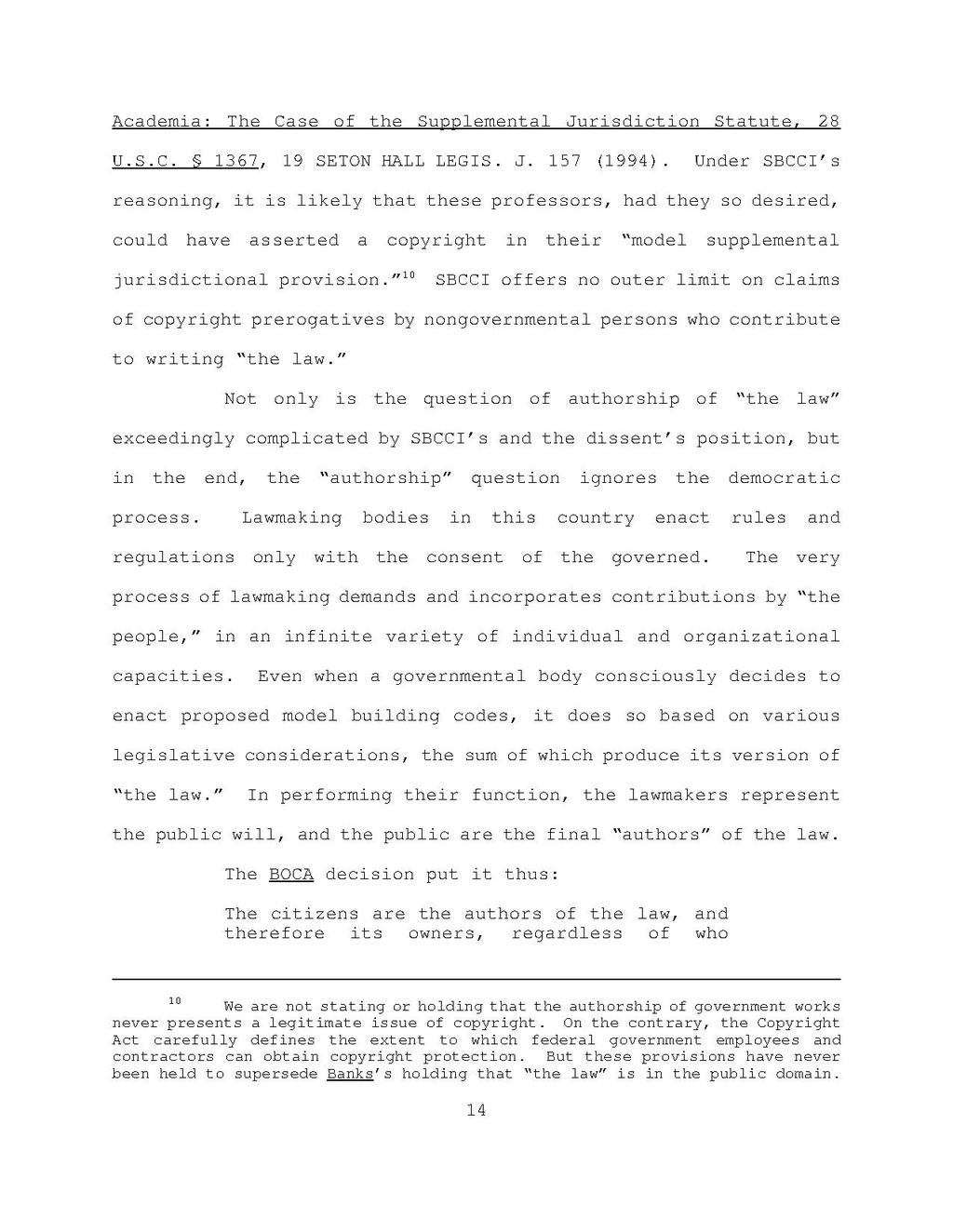Academia: The Case of the Supplemental Jurisdiction Statute, 28 U.S.C. § 1367, 19 SETON HALL LEGIS. J. 157 (1994). Under SBCCI's reasoning, it is likely that these professors, had they so desired, could have asserted a copyright in their "model supplemental jurisdictional provision."[1] SBCCI offers no outer limit on claims of copyright prerogatives by nongovernmental persons who contribute to writing "the law."
Not only is the question of authorship of "the law" exceedingly complicated by SBCCI's and the dissent's position, but in the end, the "authorship" question ignores the democratic process. Lawmaking bodies in this country enact rules and regulations only with the consent of the governed. The very process of lawmaking demands and incorporates contributions by "the people," in an infinite variety of individual and organizational capacities. Even when a governmental body consciously decides to enact proposed model building codes, it does so based on various legislative considerations, the sum of which produce its version of "the law." In performing their function, the lawmakers represent the public will, and the public are the final "authors" of the law.
The BOCA decision put it thus:
The citizens are the authors of the law, and therefore its owners, regardless of who
- ↑ We are not stating or holding that the authorship of government works never presents a legitimate issue of copyright. On the contrary, the Copyright Act carefully defines the extent to which federal government employees and contractors can obtain copyright protection. But these provisions have never been held to supersede Banks's holding that "the law" is in the public domain.
14
